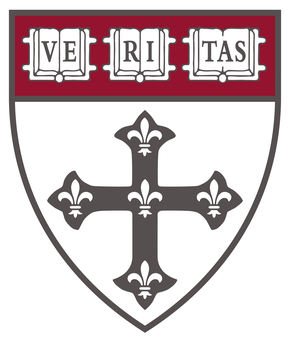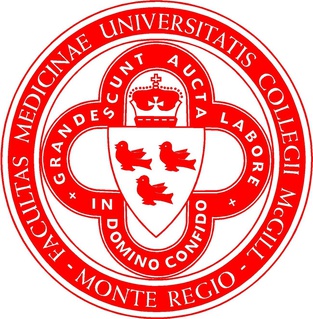
The Baylor College of Medicine (BCM) is a private medical school in Houston, Texas, United States. Originally as the Baylor University College of Medicine from 1903 to 1969, the college became independent with the current name and has been separate from Baylor University since 1969. The college consists of four schools: the School of Medicine, the Graduate School of Biomedical Sciences, the School of Health Professions, and the National School of Tropical Medicine.

The University of Texas Southwestern Medical Center is a public academic health science center in Dallas, Texas. With approximately 23,000 employees, more than 3,000 full-time faculty, and nearly 4 million outpatient visits per year, UT Southwestern is the largest medical school in the University of Texas System and the State of Texas.

Frank Edward Young was an American physician who served as Commissioner of Food and Drugs from 1984 to 1989 and later as a deputy assistant secretary in the United States Department of Health and Human Services. In 2013 he joined Braeburn Pharmaceuticals as executive vice president, clinical and regulatory affairs. In 2018, he became the executive vice president of clinical and regulatory affairs at TissueTech Inc.

Leonard Andrew Scheele was an American physician and public servant. He was appointed the seventh Surgeon General of the United States from 1948 to 1956.

William H. Stewart was an American pediatrician and epidemiologist. He was appointed tenth Surgeon General of the United States from 1965 to 1969.

Julius Benjamin Richmond was an American pediatrician and public health administrator. He was a vice admiral in the United States Public Health Service Commissioned Corps and served as the United States Surgeon General and the United States Assistant Secretary for Health during the Carter Administration, from 1977 to 1981. Richmond is noted for his role in the creation of the Head Start program for disadvantaged children, serving as its first national director.

The Presidential Advisory Council on HIV/AIDS (PACHA) advises the White House and the Secretary of Health and Human Services on the US government's response to the AIDS epidemic. The commission was formed by President Bill Clinton in 1995 and each president since has renewed the council's charter.

Uniformed Services University of the Health Sciences (USU) is a health science university and professional school of the U.S. federal government. The primary mission of the school is to prepare graduates for service to the U.S. at home and abroad as uniformed health professionals, scientists and leaders; by conducting cutting-edge, military-relevant research; by leading the Military Health System in key functional and intellectual areas; and by providing operational support to units around the world.

The Harvard T.H. Chan School of Public Health is the public health school of Harvard University, located in the Longwood Medical Area of Boston, Massachusetts. The school grew out of the Harvard-MIT School for Health Officers, the nation's first graduate training program in population health, which was founded in 1913 and then became the Harvard School of Public Health in 1922.

David Platt Rall was a cancer specialist and a leader in environmental health studies, whose work in environmental health helped turn it into a scientific discipline. Rall also advanced public health and prevention. He directed the National Institute of Environmental Health Sciences from 1971 to 1990, year in which he retired. His work on toxicology and carcinogenesis was recognized by his appointment as the first director of the National Toxicology Program in 1978. He held the rank of Assistant Surgeon General in the United States Public Health Service. He also chaired the World Health Organization's Program on Chemical Safety.

The Johns Hopkins University School of Medicine (JHUSOM) is the medical school of Johns Hopkins University, a private research university in Baltimore, Maryland. Founded in 1893, the School of Medicine shares a campus with Johns Hopkins Hospital and Johns Hopkins Children's Center, established in 1889.
The University of Maryland School of Medicine, located in Baltimore City, Maryland, U.S., is the medical school of the University of Maryland, Baltimore and is affiliated with the University of Maryland Medical Center and Medical System. Established in 1807 as the College of Medicine of Maryland, it is the first public and the fifth oldest medical school in the United States. UMB SOM's campus includes Davidge Hall, which was built in 1812, and is the oldest building in continuous use for medical education in the Northern Hemisphere.

The Faculty of Medicine and Health Sciences is one of the constituent faculties of McGill University. It was established in 1829 after the Montreal Medical Institution was incorporated into McGill College as the college's first faculty; it was the first medical faculty to be established in Canada. The Faculty awarded McGill's first degree, and Canada's first medical degree to William Leslie Logie in 1833.

The State University of New York Upstate Medical University is a public medical school in Syracuse, New York. Founded in 1834, Upstate is the 15th oldest medical school in the United States and is the only medical school in Central New York. The university is part of the State University of New York (SUNY) system.
The National Science Advisory Board for Biosecurity (NSABB) is a panel of experts that reports to the Secretary of the United States Department of Health and Human Services. It is tasked with recommending policies on such questions as how to prevent published research in biotechnology from aiding terrorism, without slowing scientific progress.

Steven Kenneth Galson is an American public health physician. He is currently a Senior Advisor at the Boston Consulting Group and Independent Board Member at Biocryst Pharmaceuticals and Elephas Biosciences. Until 2021 he was Senior Vice President for Research and Development at Amgen, the California-based biopharmaceutical company. He is also a Trustee and Professor-at-Large at the Keck Graduate Institute for Applied Life Sciences in Claremont, California. He is a retired rear admiral in the United States Public Health Service Commissioned Corps and public health administrator who served as the acting Surgeon General of the United States from October 1, 2007 – October 1, 2009. He served concurrently as acting Assistant Secretary for Health from January 22, 2009 to June 25, 2009, and as the Deputy Director and Director of the Center for Drug Evaluation and Research (CDER) at the Food and Drug Administration from 2001 to 2007. As the Acting Surgeon General, he was the commander of the United States Public Health Service Commissioned Corps and, while serving as the Assistant Secretary for Health, was the operational head of the Public Health Service.

Smoking and Health: Report of the Advisory Committee to the Surgeon General of the Public Health Service was a landmark report published on January 11, 1964, by the Surgeon General's Advisory Committee on Smoking and Health, chaired by Luther Terry, Surgeon General of the United States. It reported on the negative health effects of tobacco smoking, finding that it was linked to the occurrence of chronic bronchitis, emphysema, heart disease, and lung cancer. The release of the report was one of the top news stories of 1964, leading to policy such as the Cigarette Labeling and Advertising Act of 1965 and the Public Health Cigarette Smoking Act of 1969.

Brett P. Giroir is an American pediatrician. He was formerly the U.S. assistant secretary for health, a four-star admiral in the U.S. Public Health Service Commissioned Corps and an acting Food and Drug Administration commissioner.















